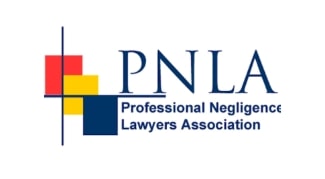
Will my personal injury claim go to court?
You may be an injured person who is worried about making a personal injury claim, as the thought of potentially attending court makes you worried. This article explores why very few personal injury claims actually end up reaching the trial stage, whilst also explaining the reasons why court proceedings may be necessary in certain circumstances.
In bringing a claim for personal injury, it is very difficult to determine the level of work that may be required as this is dictated by the stance deployed by the other party, whether court proceedings need to be issued and how long those court proceedings last. Very few claims go to trial as the vast majority of personal injury claims settle outside of court.
When I first started my legal career at Lennons, I remember standing outside of a courtroom with my Managing Director (Andrew King), Counsel, Counsel’s clerk and the client as we awaited the start of a trial. The trial was about to commence in a few minutes, when the Defendant dramatically made a settlement offer. Then, we went somewhere private, away from the Defendant’s representatives, and spent several moments advising the client about the offer, right outside the courtroom! The client instructed that we accept the offer and so, a trial allocated for a few days was no longer required.
In which situations will it be necessary to start court proceedings?
Issuing court proceedings in personal injury claims may be necessary in certain situations, including:
Liability Dispute: If there is a significant dispute regarding who is at fault for the accident or injury, and it has not been possible to achieve a resolution with the Defendant but we still believe you have more chance of winning than losing, issuing court proceedings against the Defendant may be necessary.
Inadequate Settlement Offers: If the Defendant is offering an insufficient settlement amount that does not adequately compensate you for your injuries and losses, you may decide to instruct your solicitors to issue court proceedings to seek a more fair compensation.
Complex or child cases: Some personal injury claims involve complex legal or factual issues that may require the court’s intervention for a fair resolution. For instance, claims involving serious head and brain injuries and claims involving injuries to children may benefit from a judge’s expertise in sorting out the complexities of the case and approving the settlement.
Limitation period: You usually have three years from the date of the accident to make a personal injury claim. If you are fast approaching the expiry of this “limitation period”, initiating court proceedings may be necessary to preserve your right to seek compensation.
Please be minded that just because proceedings have been commenced, it does not mean that your case will reach all the way to court. Usually, neither party wants to take the case all the way to court due to the costs involved and so, an out of court settlement is still likely even after the litigation process has been triggered. A case being litigated does not prevent the parties from engaging in mediations, joint settlement meetings and other without prejudice discussions/negotiations as efforts to settle the case.
Why are most personal injury claims settled outside of court?
Most personal injury claims are settled out of court for several reasons:
Cost: going to court can be expensive. Legal fees, court fees, expert fees, and other expenses can accumulate quickly. By settling out of court, both parties can avoid the high costs associated with a lengthy litigation process.
Time: court cases can take a significant amount of time to resolve. The courts are currently dealing with a backlog of cases, which means that the case could drag on for months or even years, causing delays in receiving compensation. Settling out of court allows for a quicker resolution, ensuring that the injured party receives compensation in a more timely manner.
Uncertainty: Trials are unpredictable, and the outcome is uncertain. A judge’s decision can go either way, which makes it risky for both parties. By settling out of court, both parties can have more control over the outcome and avoid the uncertainty of leaving the decision in the hands of others.
Emotional impact: Going through a Trial can be emotionally taxing for all parties involved. Settling out of court can help reduce the stress and emotional strain by avoiding the adversarial nature of litigation.
Conclusion
Ultimately, the decision to issue court proceedings depends on the specific circumstances of your case, the advice of your personal injury solicitor, and your goals and preferences for resolution.
Read more on this subject
This is part three of Laxmi’s thread of articles which answer personal injury clients’ frequently asked questions. Part one and part two are available to read in our articles section.
Get more help
At Lennons, we have experienced personal injury lawyers to help you understand when court proceedings may be necessary or advisable in your particular situation. If you have sustained injuries as a result of an accident and want to bring a claim, please call us on 01494 773377 or email hello@lennonssolicitors.co.uk.
DISCLAIMER: The content of this article has been prepared for informational purposes only. This content does not constitute legal advice, nor does it give rise to a solicitor/client relationship. Specialist legal advice should be taken in relation to specific circumstances.














































